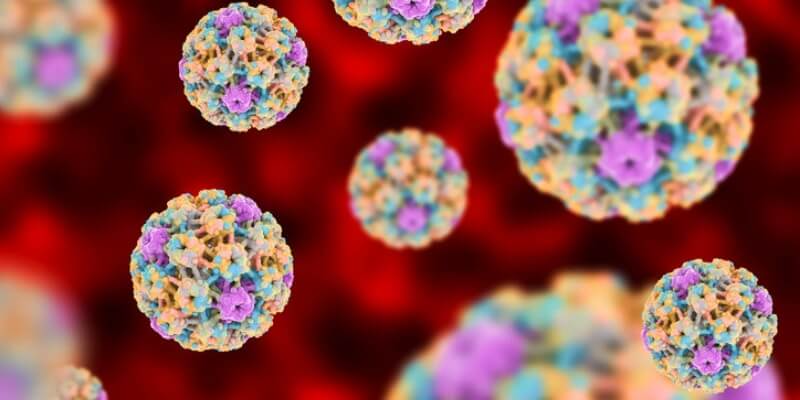Hearing from your gynecologist that you have a sexually transmitted disease (STD) is disturbing, to say the least. Feelings range from shock, anger, sadness, and fear, to wondering what to do next. Is there a cure? How is it manage? How do you tell an intimate partner?
One of the most common STDs is Human Papillomavirus (HPV).
What Is HPV?
Human Papillomavirus is the most common sexually transmitted infection in the US. It consists of a group of over 150 viruses. Each virus is given a number which is called its HPV type, some of which can lead to cancer. It is transmitted through genital contact: vaginal, anal, or oral sex, even when there are no signs or symptoms. Most patients are in their teens or early 20’s.
The condition is so common, that most sexually active people will contract it at some point in their life. In many instances, it will go away on its own. However, it should not be taken lightly: in some cases, HPV develops into genital warts or cervical cancer.
HPV Symptoms in Women
Most people who have HPV don’t experience any symptoms. This is why it’s crucial to have annual exams with your OB-GYN. Detecting cell abnormalities early can prevent complications, such as cancer of the vulva or cervix.
If HPV develops into genital warts, you’ll notice fleshy, soft bumps around the vagina. They are usually shaped like cauliflower and may cause irritation, but are painless.
HPV Symptoms in Men
Men do not typically experience symptoms or health problems. Yet, this doesn’t mean they’re exempt from complications. High-risk HPV in men can result in penile cancer. Signs that the virus has developed into cancer include changes in skin color and texture of the penis, as well as bleeding, and unusual discharge.
Men are also at risk of developing genital warts. However, the virus that causes cancer (high-risk HPV) is different than the virus that causes warts (low-risk HPV).
Symptoms in Both Men and Women
In addition to the risk of cancer of the genitals, HPV could develop into anal or throat cancer. Complications are more likely to develop in patients who have an underlying illness that weakens their immune system, such as HIV.
HPV Testing
Women can be screened for HPV with a regular pap smear. Any cell abnormality is an indication that additional testing is necessary.
HPV Treatment for Women
If you don’t have symptoms, treatment may not be necessary. It will depend on whether you have high-risk or low-risk HPV. Your body may be able to clear the virus on its own.
If your OB-GYN has a concern that the virus could develop into something more serious, they will order a colposcopy. This procedure is similar to a pap smear but is performed using an illuminated magnifying instrument called a colposcope. Samples of tissue may be taken from the cervix or vagina for lab testing to check for signs of disease.
If lab results indicate high-risk cells, there are different methods available to eradicate them, such as freezing them or burning the abnormal cells with laser therapy.
HPV Prevention
The only way to completely prevent HPV is through abstinence from sexual intercourse. Condoms can fail to cover infected skin. Since abnegation is an impractical and unrealistic solution for some, there are precautions one can take to prevent health issues related to the virus:
1.HPV Vaccines. The HPV vaccine (Gardasil) protects against high-risk human papillomavirus. Specifically, it protects against HPV types 16 and 18, which often result in cancer, and types 6 and 11, which often result in genital warts.
For people between the ages of 9 and 14, two vaccines are required, six months apart. For people between 15 and 45, three vaccines are required, all administered within six months.
The purpose of vaccinating children is to protect them years before they become sexually active.
2. Pap Tests. These don’t prevent HPV, but they are essential for early detection and cancer prevention. Even if you’ve been vaccinated for HPV, you could still develop cervical cancer.
OB-GYN Women’s Center Can Provide Screening and Treatment
We understand that sexually transmitted diseases are a difficult subject to talk about.
At OB-GYN Women’s Center, we aim to make our patients comfortable. Getting answers to your questions is the first step in getting the treatment you need.
Contact us to schedule an appointment. Because something worse than having a sexually transmitted disease is leaving it untreated. Don’t let it turn into a more serious condition.


